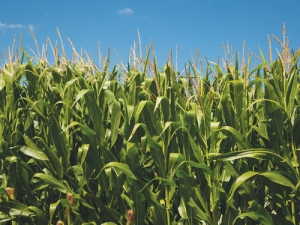Subsidies keeping wind, solar generation viable
OPINION: I recently wrote an open letter to the Prime Minister because at a recent Federated Farmers meeting, Chris Luxon told me wind and solar generation is not subsidised.
 The symposium focuses mainly on the biotechnologies that could result in yield increases, better nutritional qualities, improved productivities of crops, livestock, fish and trees.
The symposium focuses mainly on the biotechnologies that could result in yield increases, better nutritional qualities, improved productivities of crops, livestock, fish and trees.
Exploring how agricultural biotechnologies can benefit small-holder farmers particularly in developing countries will be the subject of an international symposium next month.
The UN Food and Agricultural Organisation (FAO) is hosting the symposium 'The Role of Agricultural Biotechnologies in Sustainable Food Systems and Nutrition' at its headquarters in Italy from February 15-17. The event will be webcast live.
The contribution of a wide spectrum of biotechnologies to sustainable food systems and nutrition will be covered. A high-level ministerial segment will take place on February 16.
The symposium focuses mainly on the broad range of biotechnologies that could result in yield increases, better nutritional qualities, improved productivities of crops, livestock, fish and trees.
These biotechnologies encompass a wide range of low-tech to high-tech approaches which can make the development of improved varieties and breeds that adapt to the effects of climate change, faster and more efficient.
The focus is on agricultural biotechnologies that are currently available and ready to use by smallholder producers, including low-tech approaches involving artificial insemination, fermentation techniques, biofertilisers etc. up to high-tech approaches involving advanced DNA-based methodologies
While the symposium encompasses genetically modified organisms (GMOs), they are not its main focus.
Students from several universities around the world will be able to participate in an online interactive session to identify and convey key messages to policy and decision makers.
The Meat Industry Association of New Zealand (MIA) today announced that Chief Executive Officer Sirma Karapeeva has resigned from the role.
The winners of the 2026 Hawke’s Bay/Wairarapa Dairy Industry Awards were announced at the annual awards dinner held at Copthorne Solway Park in Masterton on Thursday evening.
Environment Southland is welcoming this week’s decision by the Environmental Protection Authority (EPA) to approve the release of Blaptea elguetai, a leaf‑feeding beetle that will help control the highly invasive Chilean flame creeper.
This March, the potato industry is proudly celebrating International Women’s Day on 8 March alongside the International Year of the Woman Farmer, recognising the vital role women play across every part of the sector — from paddocks and packhouses to research, leadership, and innovation.
Fruit trader Seeka posted a record profit and returns to shareholders in 2025.
Recent weather events in the Bay of Plenty, Gisborne/Tairawhiti, and Canterbury have been declared a medium-scale adverse event.

OPINION: A mate of yours truly reckons rural Manawatu families are the latest to suffer under what he calls the…
OPINION: If old Winston Peters thinks building trade relations with new nations, such as India, isn't a necessary investment in…